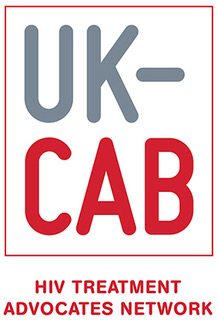7. HIV across the life course
This section looks at the impact of HIV at different times in someone’s life. Separate Standards exist for children living with HIV. These are produced by the Children’s HIV Association (CHIVA) and are not included here.
7b. Early to middle adulthood
If you are aged between 25 and 65 years you are in early to middle age.
People living with HIV in this age group can have very different lives.
Some may have been diagnosed as children and have grown up living with HIV and are now cared for in adult services. Your needs can be specific for both special physical and emotional healthcare. Services should be available for these specific needs at your clinic. These services should make sure you stay as healthy and well as possible.
Most people in this age group will have been diagnosed as adults.
If you have had an early diagnosis – that is, soon after you acquired HIV – and if you started HIV treatment soon after diagnosis, then it’s likely that you’ve no or few HIV-related health issues. HIV care services should not interfere with your day-to-day schedule. This includes your education, training and employment.
Other people in this group may have been diagnosed a long time ago, or were diagnosed late – that is, a long time after they acquired HIV. People in this group may have complex care needs because of the harmful effects of early HIV treatments or they may have symptoms caused by previously untreated HIV. If so, they may need more support, both for physical health, and emotional and mental health. Support might need to come from other care services. Peer support organisations may also be useful. Here, people living with HIV can share experiences and get support from each other in a safe and caring environment.
Other factors should be considered for everyone, including drug and alcohol dependency, poverty, housing, immigration status and dealing with stigma. Peer support organisations can help in many of these areas, and you should be told about where to access peer support. Your doctors should also monitor your mental health and help you during this time.
People in this age group are usually sexually active. Everyone is entitled to healthy and fulfilling sex lives, including people living with HIV. Like everyone else, you should have access to sexual and reproductive health services. You should be informed about Undetectable equals Untransmittable (U=U), treatment as prevention (TasP), other sexually transmitted infections (STIs), and have access to regular and routine sexual health check-ups. This is discussed more in Standard 5 (Sexual and reproductive health).
Reproductive health services should be provided. If you plan to have a baby, you should be given access to information on HIV and pregnancy that is easy to understand. Thanks to U=U, it is now possible to have condomless sex without the risk of passing on HIV to your partner. It is possible to get pregnant naturally, even if you are HIV positive, but your partner is not. This is also discussed in Standard 5 (Sexual and reproductive health).
Key messages
You should have access to all information and support about living with HIV; starting and continuing HIV treatment; planning pregnancy; hospital care; education and employment; housing, benefits, immigration status; drug or alcohol dependency; poor mental health. Services should be individualised with access to peer and social support.
Care and support services should not limit your daily routine. Clinic visits, simplified medication with home delivery, and access to test results should be made easy for you, with your agreement.
You should get advice and support to maintain your health, such as stopping smoking, having a balanced diet, exercising, and support for alcohol or drug dependence.
